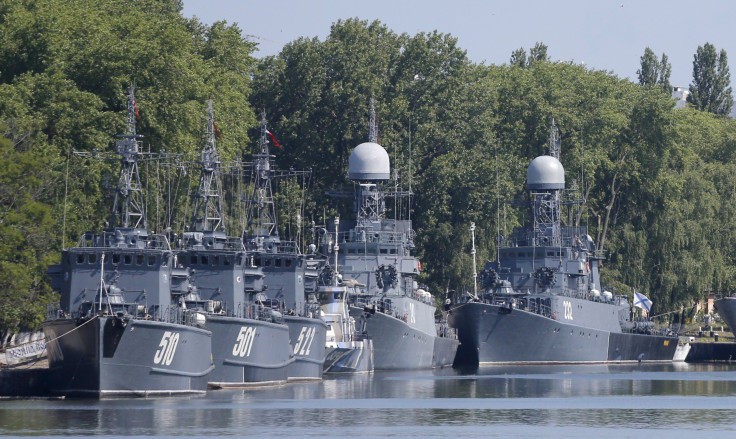After Russian Nuclear Missile Drills, Baltic Sea Access Could be Blocked By Moscow, Pentagon Fears

Russia has stoked Pentagon fears access to the Baltic Sea could be blocked following a range of nuclear launch drills from Russia's Kaliningrad military base in the last couple of years, a top U.S. commander in Europe said Wednesday. Russia currently has a significant level of air defenses and anti-ship weaponry in the region, which would pose a challenge for U.S. military assets trying to enter the Baltic Sea and assist NATO allies, according to a Defense One report Wednesday.
“They could make it very difficult for any of us to get up into the Baltic Sea if we needed to in a contingency,” Lt. Gen. Ben Hodges said in a briefing at the Pentagon.
Russia had regularly conducted drills using nuclear-capable, short-range Iskander missiles, which can hit targets up to 500 kilometers (310 miles) away. Typically, U.S. and NATO only find out about the drills after they begin, Hodges said. Russia is fully informed, he added, and invited to attend when similar drills are conducted by NATO.
From Kaliningrad #Russia has the capability to deny access to the Baltic sea says Gen Hodges https://t.co/RyF4HnZ0SZ pic.twitter.com/ECAWt9giMV
— estNATO (@estNATO) December 10, 2015
Since Russia annexed Crimea in March 2014 and became involved in the Ukraine war one month later, Moscow has resumed large scale ballistic missile tests and its adversarial relationship with the NATO-led West.
Situated between Poland and Lithuania at the east end of the Baltic Sea, Kaliningrad is a Russian enclave and a strategic outpost for its navy and air force. The Pentagon's primary fear is that by blocking access into the Baltic Sea, Russia could prevent NATO forces from reaching its Baltic allies — Estonia, Latvia and Lithuania — while also preventing access to regional partners Finland and Sweden.
“We have seen them do exercises where … there’s a nuclear strike,” Hodges said. “They don’t [say] gray land, and silver land, or red land, or stuff like that. They say ‘NATO is the adversary’ when they do their exercises. I mean, they’re pretty blunt about that.”
Russia has not yet conducted a full-scale drill specifically to block access to the Baltic Sea, Hodges said, but the threat is still there. “I haven’t seen one exercise that looked like a complete rehearsal for that,” he said, but “they’ve done lots of the components that would be required to do those various things in terms of air, maritime, [and] land forces.”
© Copyright IBTimes 2024. All rights reserved.






















